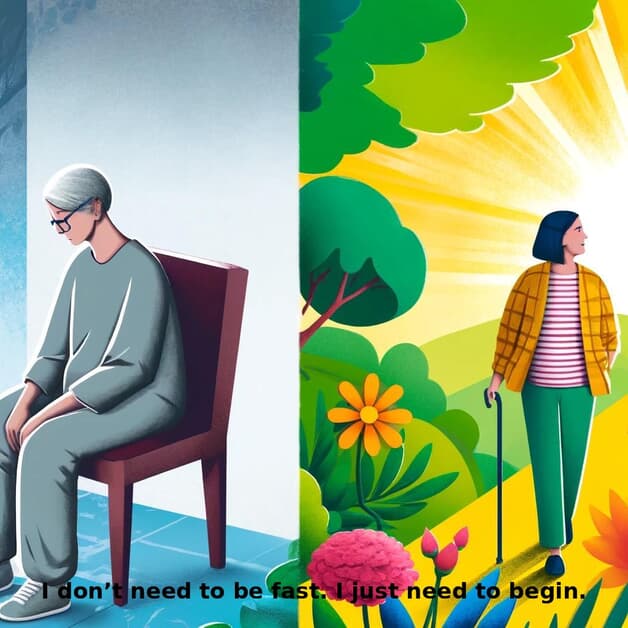
Fatigue After Cancer: Why You Feel Exhausted and What Actually Helps
Energy Returns, Not All At Once, But With Every Gentle Movement.
You are told the treatment’s finished– but your body still feels like it is running on empty. No one warned you that it would be this hard to get out of bed, to walk to the kitchen, to string a full day together.
This isn’t ordinary tiredness. This is cancer-related fatigue– and it’s real.
What is Cancer Fatigue?
It’s not just being worn out. Cancer fatigue is a whole-body exhaustion– physical, emotional, and mental– that doesn’t go away with rest.
According to Cancer research UK, around 70-100% of people experience fatigue during or after treatment. For many, it lingers for months– or even years after treatment ends.
You are not lazy. You are not being dramatic. Your body has been through trauma. This fatigue is a response to that.
Why It Happens
Cancer fatigue can be caused by:
• The cancer itself (A friend recently diagnosed with bowel cancer felt well almost immediately after surgery, apart from weakness from being away from work and not doing usual daily tasks. Had felt tired when looking back for about 2 years prior to diagnosis. The fatigue had crept on)
• Chemotherapy or radiotherapy (My husbanc had no symptoms prior to his diagnosis for bowel cancer– he experienced fatigue after the surgery and chemotherapy and still needs an afternoon nap most days)
• Surgery and healing demands
• Anemia or disrupted sleep
• Hormonal changes
• Emotional strain and mental overload
Your nervous system has been on high alert for a long time. Recovery is about soothing that system, not shocking it.
Motion is medicine, and joy is found in the little steps.
What Actually Helps (And What Doesn’t)
1) Gentle Movement– It sounds counterintuitive– but light, guided movement can help reduce fatigue overtime. Research from Macmillan shows that exercise is one of the most effective fatigue management strategies post-treatment.
2) Pacing and Planning– Not everything needs to be done in one go. Use the “3 P’s” approach
• Prioritise what matters today
• Plan your energy out in blocks
• Pace yourself and give yourself permission to rest
3) Breathwork and Nervous system support– Breathing practices help settle your nervous system and improve oxygen flow– two powerful tools against fatigue
4) Sleep support and restorative routines– It’s not just about sleeping more– better quality rest is important. Calming evening rituals, naps (just 10-30 minutes), and reducing stimulation can really help.
5) Saying “NO”– You don’t have to explain your energy levels to people. Fatigue is invisible– that does not make it less valid
You Are Not Lazy. You Are Healing
Fatigue can make you question yourself– your strength, your capabilities, even your identity.
Remember you are not broken. You just need care, pacing and the right support to rebuild yourself from the inside out.
You will often find a cancer rehab programme in your local area, and be able to attend 6-12 sessions to help get you moving again.
I have designed a 6-week cancer recovery and wellbeing programme – all done in the comfort of your own home, in the company of others also recovering from cancer. Peer support and guided movement, this has proven evidence to support recovery and survivorship.
If you would like to chat first message me fi@therapyinmotion.co
